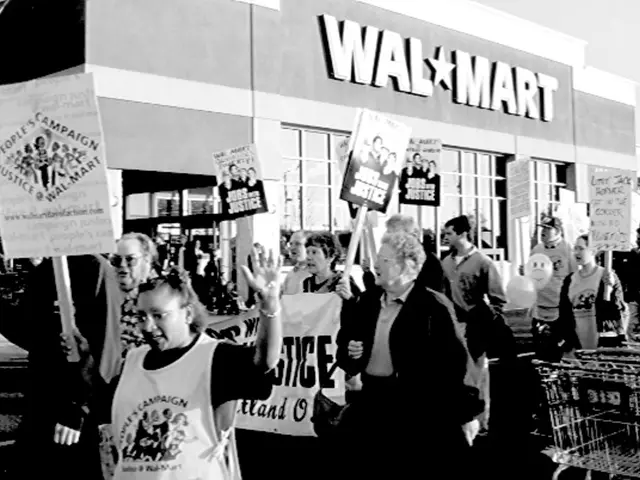Rapid Transformation in the 1930s
In the 1930s, a rapid shift occurred in Germany, as the German Republic transformed into the Nazi's Third Reich. This transition was marked by a growing disconnect between the population and those in power, a concern that was highlighted by Albert C. Grzesinksi's statements. Grzesinksi, a former Minister of the Interior of Prussia, warned about the dangers of slander, abuse, and insidious intrigues, and emphasised that these weapons were more dangerous than physical weapons.
Grzesinksi's warnings, published in Evangelical Focus and Biblical Preaching, remain relevant today. He stated that the state belongs to the people only if all the people take part in the exercise of government and public authority, and that the best laws are of little value when carried out haphazardly or reluctantly.
Hitler, in his book Mein Kampf, echoed these sentiments, stating that a big lie has a better chance of being believed than a small one. This idea, that the masses are more susceptible to a big lie than a small one, was observed not just in the 1930s, but also in today's news today, where a politically motivated cancel culture is not a new phenomenon.
In the 1930s, many young Germans were uninformed or deliberately misinformed about the history of the war in the 1910s. Evidence suggests that this lack of knowledge persists today, with concern about the younger generation's understanding of threats to society from political, ideological, or religious groups.
The role of the church in Germany during the 1930s was complex. While some Protestant factions aligned closely with Nazi ideology, promoting an "Aryan" church and integrating with Nazi structures, others opposed this, as exemplified by pastors protesting the exclusion of Jewish Christians and defending church autonomy. The Catholic Church maintained a significant influence but has a nuanced legacy including both complicity and resistance in that period.
Grzesinksi, who resigned as Minister of the Interior of Prussia in 1930 due to a targeted hate campaign, also emphasised the importance of the church in society. He stated that the church should stand as a beacon of truth and justice, and that pastors should be vigilant in a society leaning in a dangerous direction.
Today, this question remains significant: what role should the church play in a society that seems to be moving in a dangerous direction? As we reflect on the past, Grzesinksi's warnings serve as a reminder of the importance of truth, justice, and vigilance in the face of deceit and manipulation.
Read also:
- United States tariffs pose a threat to India, necessitating the recruitment of adept negotiators or strategists, similar to those who had influenced Trump's decisions.
- Weekly happenings in the German Federal Parliament (Bundestag)
- Southwest region's most popular posts, accompanied by an inquiry:
- Discussion between Putin and Trump in Alaska could potentially overshadow Ukraine's concerns






